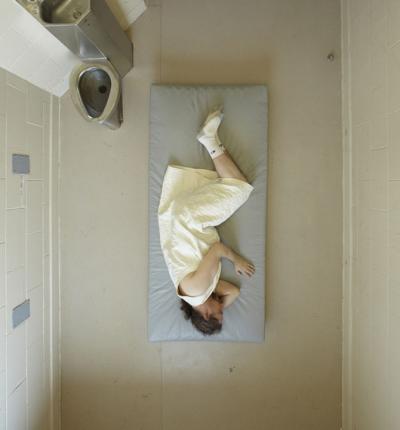Not your ordinary movie night
 Brockville would make a fine setting for all kinds of movies. It's something the folks at economic development would do well to promote. But the Brockville-based film being screened at the arts centre on Thursday is not city hall's idea of good community boosting.
Brockville would make a fine setting for all kinds of movies. It's something the folks at economic development would do well to promote. But the Brockville-based film being screened at the arts centre on Thursday is not city hall's idea of good community boosting.
Frank civic debate, however, is about real life, not Hollywood.
NCR: Not Criminally Responsible, which premiered Sunday at Toronto's Hot Docs film festival, centres on Brockville Mental Health Centre (BMHC) patient Sean Clifton, who in 1999 attacked 22-year-old Julie Bouvier with a knife at a mall in Cornwall. He now lives in Brockville on a conditional discharge under BMHC supervision.
The arts centre is hosting a free-admission screening of the film, courtesy of the National Film Board and the Royal Ottawa Health Care Group, Thursday at 7:30 p.m.
After the screening, the Royal Ottawa will feature a panel discussion involving the victim of the crime depicted in the film, Julie Bouvier, and her parents, as well as Dr. John Bradford, clinical director of the BMHC's forensic treatment unit, Dr. A.G. Ahmed, associate chief of forensics at The Royal Ottawa Health Care Group, and Leeds-Grenville Mental Health chief executive officer Laurie Dube.
After covering the case of another BHMC patient on conditional discharge, James Sidney Allen, I am already inclined to credit the institution for its willingness to be frank.
Allen was found NRC for a brutal child-killing in Orleans (east-end Ottawa) in 1975, and news of his conditional discharge sparked fear and outrage among many of his neighbours.
BMHC and its parent institution, the Royal Ottawa, never shied from talking to me for that story, or facing the community's criticisms head-on. Many will disagree with these doctors' opinions, in particular their assessment of where to draw the boundary between community safety (or community comfort) and the imperatives of treatment. No one, however, can disagree with their willingness to talk.
Drs. Bradford and Ahmed, in particular, have made it clear through their willingness to talk that mental health, the balance between the rights of the accused and their neighbours, and the realities of treatment are all matters for civic discourse.
Their willingness to host a panel discussion at the arts centre on those very topics only reinforces this.
Documentary cinema is not only journalism, but an art form. Art has the ability to be cathartic: to take these dark places in our hearts and minds, expose them and, by doing so, free us from their grip.
The NCR screening will likely not do that for everyone who shows up Thursday night. So the chance to talk about these issues in a much more practical way is much appreciated.